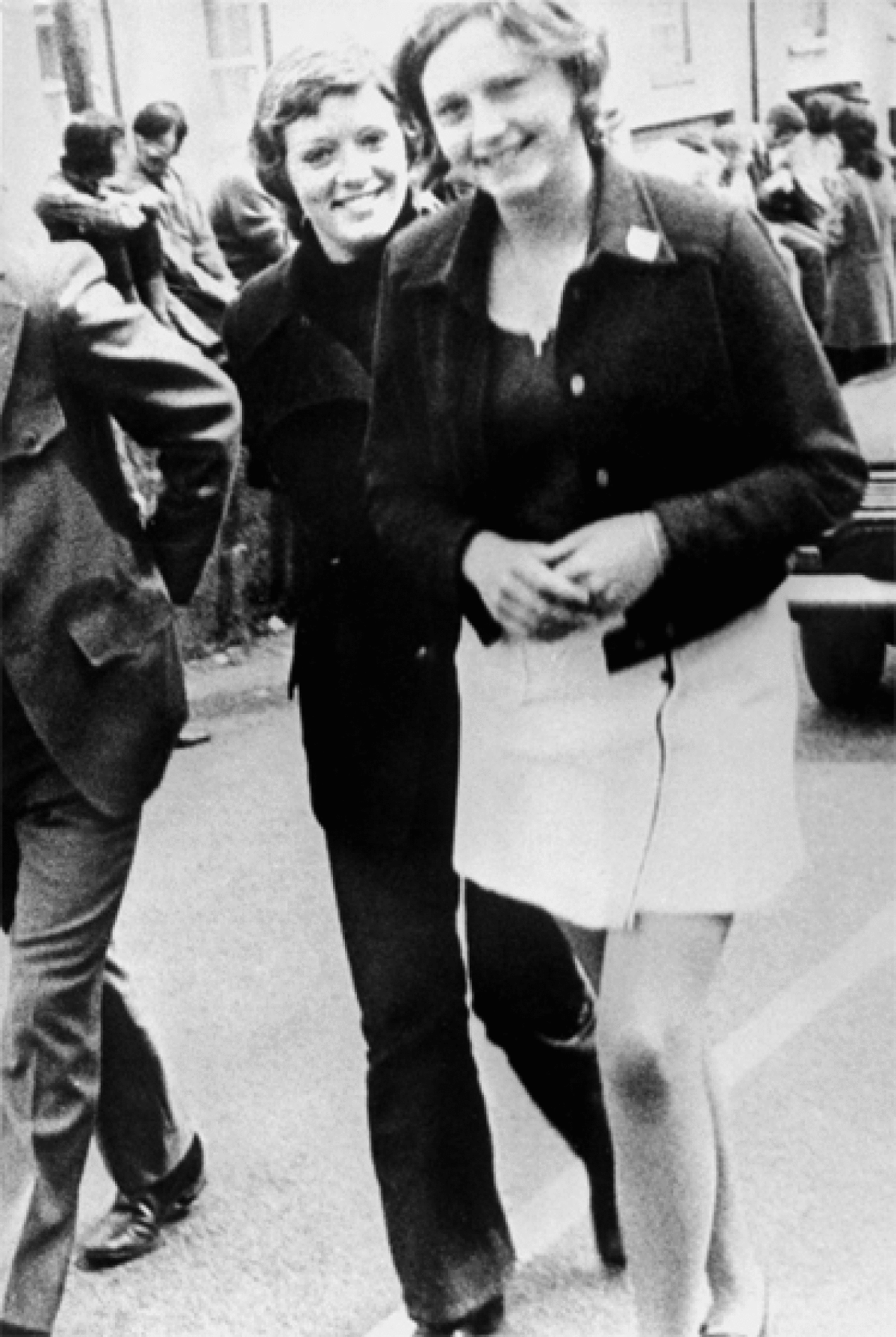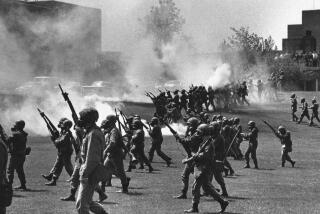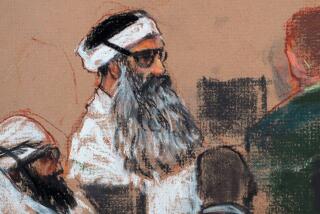Tying up the loose ends of ‘the Troubles’

The recent death of an Irish terrorist has raised the possibility of a resolution of a tangled legal controversy pitting the U.S. Department of Justice against a college that sponsored a research project about the “Troubles” in Northern Ireland. But it will not be simple.
In 1998, the governments of Britain and Ireland and Protestant and Catholic politicians in Northern Ireland signed the Good Friday Agreement. The historic compact was designed to bring a definitive end to sectarian violence that had cost more than 3,000 lives, and to establish a new political order in which pro-British Protestants would share power with Catholic nationalists.
Three years later, Boston College joined with an Irish journalist and a former member of the Irish Republican Army in an oral history project in which members of Protestant and Catholic paramilitary groups were interviewed about their activities, on the understanding that the transcripts wouldn’t be released until they died.
But, in confirmation of William Faulkner’s observation that “the past is never dead; it’s not even past,” the Belfast Project found itself the target of subpoenas by the Justice Department, acting under a law enforcement treaty between the United States and Britain. The first subpoena sought access to interviews with Brendan Hughes, who died in 2008, and Dolours Price, an unrepentant IRA terrorist who had told a reporter that she was involved in the 1972 kidnapping and execution of Jean McConville, a suspected informant for British security services. A second set of subpoenas sought interviews with other living former IRA members, also as part of the McConville investigation.
A federal district judge was willing to balance the importance of academic research against the U.S. government’s interests and treaty obligations, but in the end ruled that both the Price interviews and material from interviews with seven other former IRA members must be turned over. Because of legal appeals, the material hasn’t been given to British authorities.
Meanwhile, the case became a political cause celebre because of speculation that the interviews might implicate Gerry Adams — the leader of Sinn Fein, the IRA’s political wing — in the McConville killing. Adams has denied any role, but Price, who saw him as a turncoat for signing the Good Friday Agreement, told an Irish newspaper in 2011 that she had taken her orders from him. Then, last week, Price died.
It’s a muddle all right. John Kerry, while he was still a U.S. senator from Massachusetts, expressed the hope that the interviews would remain confidential, lest they undermine the effort to establish a “more promising tomorrow” for Northern Ireland.
We don’t agree with Kerry’s implication that crimes such as the killing of McConville shouldn’t be investigated too thoroughly because of potential political repercussions. Whether Boston College must cooperate with that investigation by releasing the Belfast Project interviews is a different question, however.
In 1972, the Supreme Court refused to rule that journalists had a broad 1st Amendment right to protect the identity of confidential sources. But one of the justices in the 5-4 majority, Lewis Powell, insisted that judges could still balance the assertion of a reporter’s privilege against “societal interests” on a case-by-case basis.
In doing so, lower courts may take into account whether the information being sought is relevant and whether prosecutors have exhausted all other sources of information before demanding that reporters violate a pledge of confidentiality. The result is that journalists enjoy a fair measure of protection for confidential sources, a privilege that benefits the public by promoting the free flow of information. Researchers such as those in the Belfast Project should have the same protection. The director of the project was in fact a prominent journalist.
Price’s death may render moot the dispute over her interviews. Boston College’s lawyers also argue that it undercuts the rationale for the second set of subpoenas, which referred to “criminal matters in the matter of Dolours Price.” But if British authorities continue to press for confidential information from the Belfast Project, the Supreme Court should be prepared to engage in the careful scrutiny Justice Powell described in 1972.
More to Read
A cure for the common opinion
Get thought-provoking perspectives with our weekly newsletter.
You may occasionally receive promotional content from the Los Angeles Times.










